Conversations with James Salter
Literary Conversations Series
Monika Gehlawat
General Editor
Conversations
with James Salter
Edited by Jennifer Levasseur
and Kevin Rabalais

www.upress.state.ms.us
The University Press of Mississippi is a member of the Association of American University Presses.
Copyright 2015 by University Press of Mississippi
All rights reserved
Manufactured in the United States of America
First printing 2015

Library of Congress Cataloging-in-Publication Data
Conversations with James Salter / edited by Jennifer Levasseur, Kevin Rabalais.
pages cm. (Literary conversations series)
Includes index.
ISBN 978-1-4968-0357-3 (hardback) ISBN 978-1-4968-0358-0 (ebook) 1. Salter, JamesInterviews. 2. Authors, American20th centuryInterviews. 3. FictionAuthorship. 4. ScreenwritersUnited StatesInterviews. 5. Motion picture authorship. 6. Motion picture producers and directorsUnited StatesInterviews. I. Levasseur, Jennifer, 1977 II. Rabalais, Kevin, 1976
PS3569.A4622Z46 2015
813.54dc23
[B]
2015019110
British Library Cataloging-in-Publication Data available
Books by James Salter
The Hunters. New York: Harper & Brothers, 1956.
The Arm of Flesh. New York: Harper & Brothers, 1961.
A Sport and a Pastime. Garden City, NY: Doubleday (Paris Review Editions), 1967.
Light Years. New York: Random House, 1975.
Solo Faces. Boston: Little, Brown, 1979.
Dusk and Other Stories. San Francisco: North Point, 1988.
Still Such (Poem). New York: William Drenttel, 1992.
Burning the Days: Recollection. New York: Random House, 1997.
The Hunters (revised). Washington, DC: Counterpoint, 1997.
Cassada (rewritten version of The Arm of Flesh). Washington, DC: Counterpoint, 2000.
Gods of Tin: The Flying Years. Edited by Jessica Benton and William Benton. Washington, DC: Shoemaker & Hoard, 2004.
Last Night: Stories. New York: Knopf, 2005.
There and Then: The Travel Writing of James Salter. Emeryville, CA: Shoemaker & Hoard, 2005.
Life Is Meals: A Food Lovers Book of Days. With Kay Eldredge Salter. New York: Knopf, 2006.
Memorable Days: The Selected Letters of James Salter and Robert Phelps. Edited by John McIntyre. Berkeley: Counterpoint, 2010.
Collected Stories. London: Picador, 2013.
All That Is. New York: Knopf, 2013.
Contents
Fred Baker with Ross Firestone / 1970
Robert E. Burke / 1988
Adam Begley / 1990
William Dowie / 1992
Edward Hirsch / 1992
Eleanor Wachtel / 1998
Chris Offutt / 2004
Dan Pope / 2004
David Bowman / 2005
Robert Franden / 2007
Kevin Rabalais / 2010
Sonya Chung / 2010
Tim Sohn / 2011
Dexter Cirillo / 2013
Thad Ziolkowski / 2013
Kevin Rabalais / 2013
Hans Ingvar Roth / 2013
Jonathan Lee / 2013
Kay Eldredge Salter / 2013
Dan DeWeese / 2013
Andrs Hax / 2014
Arnaud Laporte / 2014
Introduction
There is your life as you know it and also as others know it, perhaps incorrectly, but to which some importance must be attached. It is difficult to realize that you are observed from a number of points and the sum of them has validity.
James Salter, Burning the Days
He may have struggled for years as the greatest unknown writer in America, but the beginning of James Salters literary career sounds like a young novelists dream. Even before he resigned from the Air Force in 1957 to write full time, Salters ascent as a writer seemed to promise fame, fortune, and literary immortality. His debut novel, The Hunters (1956), sold twelve thousand copies and prompted the publisher to request another book. Salter then sold the film rights for sixty thousand dollars (equivalent to half a million today). Under Dick Powells direction, Robert Mitchum and Robert Wagner embody characters first serialized in Colliers. Salters 1961 follow-up, The Arm of Flesh, chronicles an American fighter squadron in 1950s Germany.
Then the West Point graduate who had logged more than one hundred combat missions in Korea in his twenties and published two novels while still in his thirties reinvented himself once again, this time as a screenwriter and filmmaker among such denizens as Robert Redford and Roman Polanski. Salters co-made short documentary about football, Team Team Team, won a top prize at the 1962 Venice Film Festival. Four of his screenplays became feature films, among them Downhill Racer (1969), starring Redford, and The Appointment (1969), directed by Sidney Lumet. Before his forty-fifth birthday, Salter had written and directed a feature film, Three (1969), starring Charlotte Rampling and Sam Waterston.
Interviewing Salter in 1992 for the Paris Review, Edward Hirsch notes the success that Three experienced at the Cannes Film Festival. It was a pleasant surprise, Salter says. Finally, though, it was like everything Ive done. It had its admirers, some of them ardent, but... the public displayed complete indifference.
Though lucrative, writing screenplays and making movies never brought Those two novels, A Sport and a Pastime (1967) and Light Years (1975), have enthralled generations of readers and divided critics.
For the majority of Salters career, however, admirers have pass[ed] his name along to the uninitiated with the trust of a personal secret. His devoted readers, many of them also writers, speak with reverence about his two best-known novels, as well as Solo Faces (1979) and the short stories published in Dusk (1988) and Last Night (2005). As Adam Begley writes in his 1990 New York Times profile, His readers, few in number but adamant in their conviction that he is a great writer, are confident that... [he] will eventually take his place in the canon of American literature.
The publication of All That Isand the accompanying international publicity blitzat last forged the audience Salters early career promised. In an Esquire blog, Alex Bilmes describes a London book party: Hed signed more copies of All That Is... than hed sold of previous books.
This volume collects twenty-two conversations with James Salter that span five decades. Several appear in English for the first time; others have not been previously published or were published in abbreviated versions. As a whole, they demonstrate the variety and scope of Salters career along with the progression and solidity of his ideas about writing, reading, film, relationships between the sexes, and contemporary literature. They also demonstrate Salters soaring, late-career popularity. After a shortage of early interviews, All That Is (2013) sparked worldwide interest in Salters life and work. He granted interviews to journalists and writers from around the globe. This collection includes conversations published originally in Argentina, Australia, Canada, France, Sweden, and the United States.
While Salter corrects the misconception of his renown as a novelist in
Next page

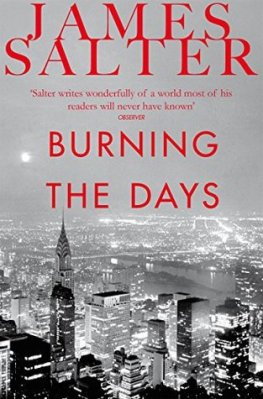
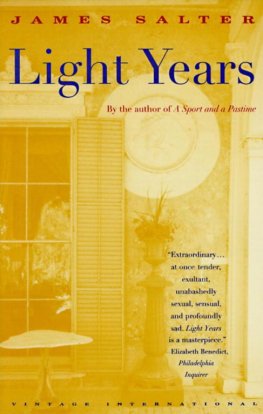
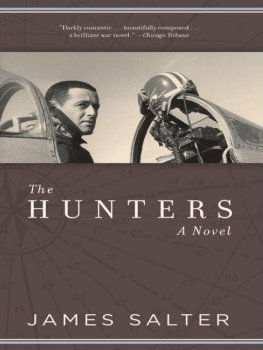
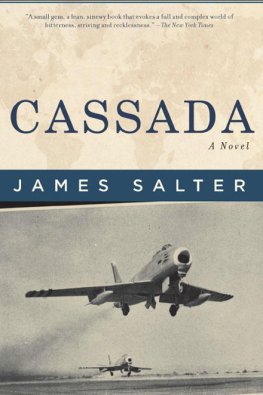

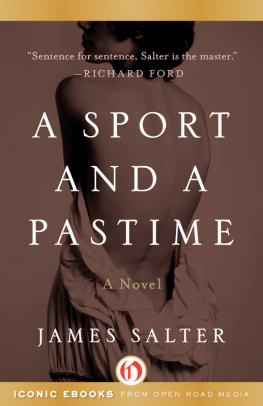
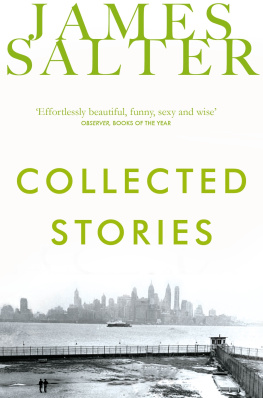
![James Salter - A sport and a pastime : [a novel]](/uploads/posts/book/43559/thumbs/james-salter-a-sport-and-a-pastime-a-novel.jpg)

